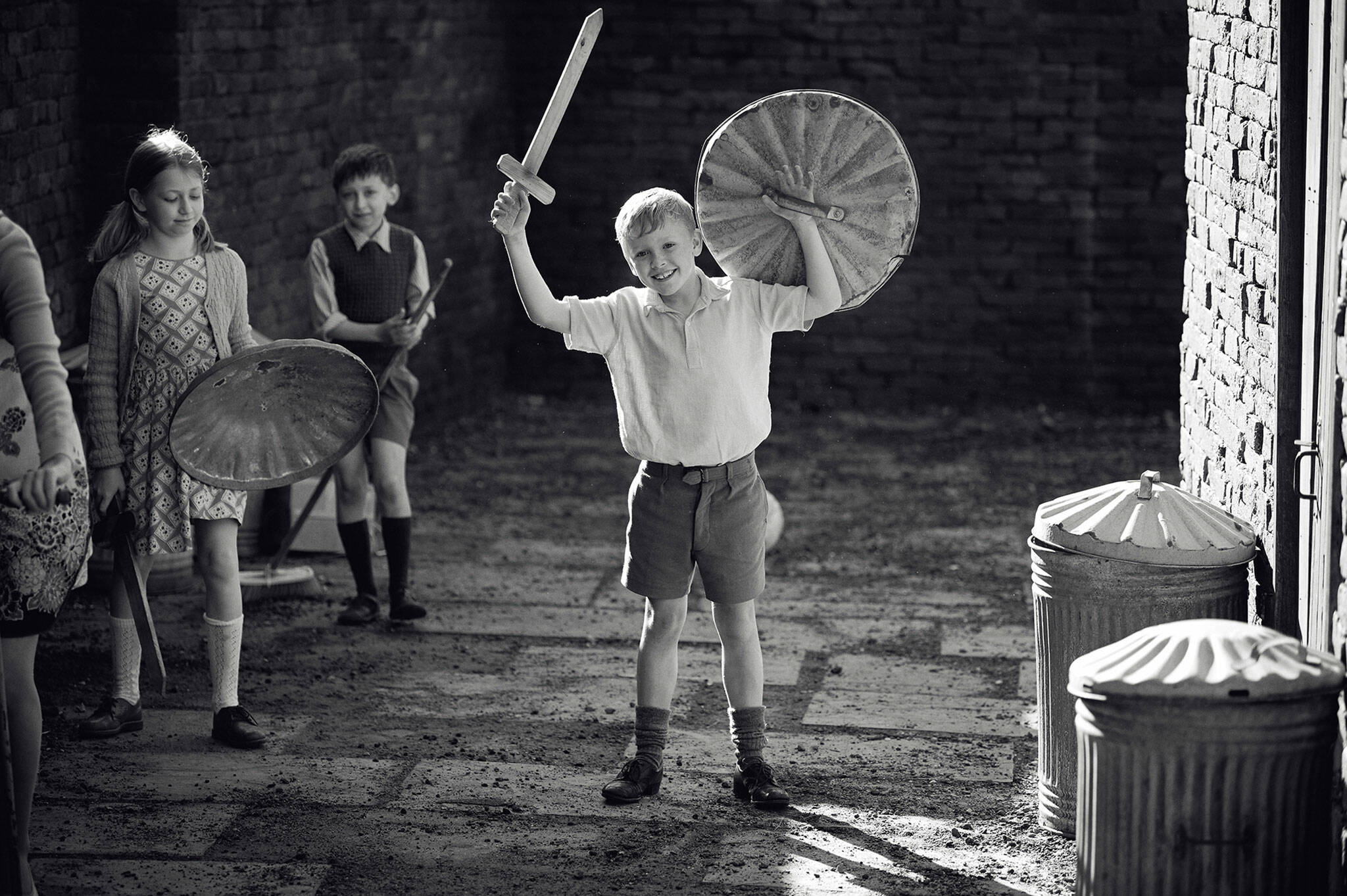By Katie Walsh / Tribune News Service
Halfway through “Belfast,” Kenneth Branagh’s deeply personal cinematic memoir of growing up in Northern Ireland during The Troubles, Branagh’s child avatar, Buddy (newcomer Jude Hill) receives some words of reassurance from his grandfather, Pop (Ciarán Hinds). He tells him, “you’re Buddy, from Belfast 15, and you’ll always be Buddy from Belfast 15. That’s the truth. It’ll keep you safe, and it’ll keep you happy.”
With “Belfast,” Branagh, the lauded actor and director known for his Shakespearean adaptations, reconnects with Buddy from Belfast 15, remembering who that boy was, what he wanted, who he loved, and what his hopes and dreams were. It’s an emotional and intimate film, a childhood remembrance steeped in nostalgia and heartbreak; a love letter to a hometown written from the soul.
The film, rated PG-13, opens Friday at the Alderwood Mall, Meridian, Oak Tree, Seattle 10, Pacific Place, Thornton Place and Woodinville theaters.
Set in 1969, during the early years of The Troubles, Buddy’s hometown has become a battlefield, a war waged street to street and house to house, with car bombs and Molotov cocktails. Buddy’s home, where he lives with his Ma (Caitriona Balfe), brother Will (Lewis McAskie) and Pa (Jamie Dornan), is on a mixed Protestant and Catholic street that comes under attack, though their windows remain intact because they’re Protestant. This constant threat of violence becomes a part of everyday life, the patrolled barricade of paving stones and burned out cars a symbol of the trauma and disruption that eventually becomes a quotidian aspect of the landscape.
Against this backdrop of civil war and conflict, life goes on. The family still loves and plays and parties and learns and laughs together, but the constant thrum of helicopters and armed military is ever present. Familial conflicts play out against this backdrop too, though they are inextricably connected with The Troubles.
Pa works in England, returning home on weekends when he can. He encourages his family to move to England, to be together and to escape the encroaching violence, but Ma resists. Belfast is her home, with relatives and friends on every street, where her accent isn’t foreign.
These conflicts, both political and domestic, are witnessed from a child’s perspective, seen through Buddy, peering through the rails of a banister or from extreme low angle shots, which mimic an adult remembering a childhood point of view. This childlike perspective highlights the absurdity of war, the internecine struggles of the Troubles, incongruous with the intertwined religious community where they live.
Branagh and cinematographer Haris Zambarloukos shot “Belfast” in black and white, with large format lenses, freezing the people, places, and faces in time. Buddy’s beloved movies, from “Chitty Chitty Bang Bang” to “One Million Years B.C.” are presented in color, their stunning timelessness reflected on his face, as he falls in love with storytelling and cinema. He uses his favorite movies and TV shows to process the world around him: a military stand-off with Protestant militants is set to “Do Not Forsake Me, Oh My Darlin” from “High Noon.” The rest of the soundtrack largely features the classic tunes of the “Belfast Cowboy” Van Morrison, while Dornan sings a memorable rendition of “Everlasting Love.”
Every piece of “Belfast,” from the songs, to the places, to the movies and toys, are strands of Branagh’s memory, indeed his DNA, laid out for the viewer not just to inspect but to share. It’s the faces, etched in black and white portraiture, of the people that endure: the pearls of wisdom from Pop, the gently stern loving Granny (an excellent, as always, Judi Dench), the yearning for more expressed by Ma and Pa. Branagh, as Buddy, bares his soul in “Belfast,” which richly rewards if you’re willing to take this trip down memory lane.
Talk to us
> Give us your news tips.
> Send us a letter to the editor.
> More Herald contact information.

























